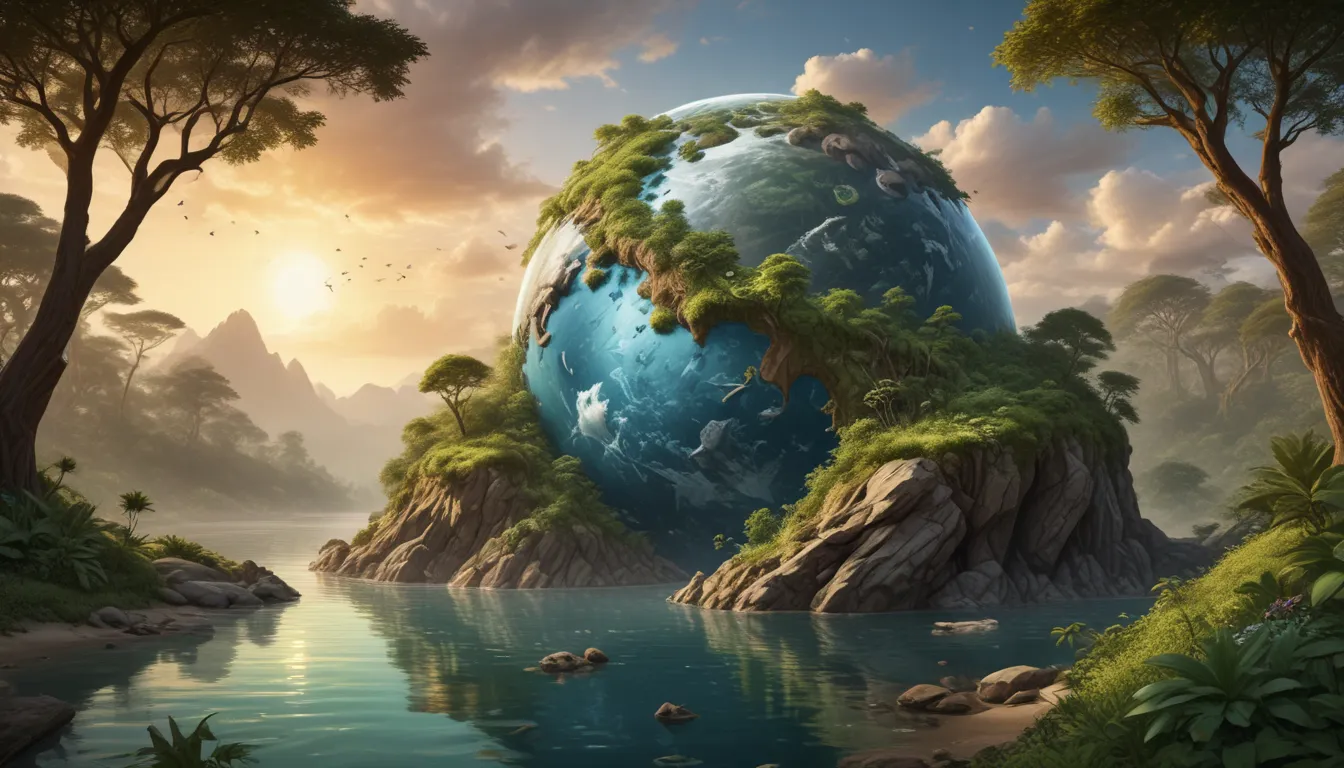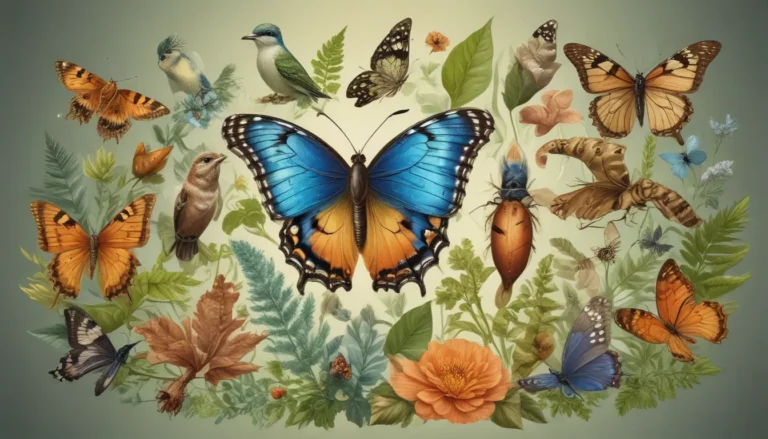A Note About Images: The images used in our articles are for illustration purposes only and may not exactly match the content. They are meant to engage readers, but the text should be relied upon for accurate information.
The biosphere is a captivating concept that encompasses all life on Earth, highlighting the interconnectedness of living organisms with their environment. This dynamic and ever-changing system is filled with astonishing facts that shed light on the complexity and beauty of our planet. In this article, we will explore eight captivating facts about the biosphere, showcasing its diversity, resilience, and vital role in supporting life. From the astonishing number of species that call the biosphere home to the delicate balance of ecosystems, we will delve into the wonders that make up our world. So, let’s embark on a journey to discover the remarkable facts about the biosphere that will leave you in awe of the intricacies of our planet.
Understanding the Biosphere
The biosphere is not merely a collection of plants, animals, and landscapes. It is a living and interconnected system where all organisms rely on each other for survival. From the smallest microorganisms to the largest mammals, every living being plays a vital role in maintaining the delicate balance of the biosphere. This intricate web of life creates a harmonious ecosystem where each species contributes to the well-being of the whole.
Diverse and Vibrant Life
The biosphere is home to countless species, with an estimated 8.7 million currently known to science. However, scientists believe that this number is just a fraction of the total species that exist on Earth. From lush rainforests teeming with life to arid deserts supporting unique adaptations, the biosphere encompasses a wide variety of ecosystems that provide habitats for a vast array of plants, animals, and microorganisms. The richness and diversity of life in the biosphere are truly awe-inspiring.
Regulating Earth’s Climate
The biosphere plays a crucial role in regulating the Earth’s climate. Through the process of photosynthesis, plants absorb carbon dioxide and release oxygen, helping to reduce greenhouse gases in the atmosphere. Additionally, forests act as carbon sinks, storing large amounts of carbon and mitigating the effects of climate change. The biosphere’s ability to maintain a delicate balance of gases in the atmosphere is essential for the sustainability of life on Earth.
Supporting Human Life
As the only known planet with a biosphere, Earth provides the necessary conditions for human life to thrive. The biosphere provides us with food, water, shelter, and countless other resources that we rely on for our survival and well-being. Protecting the biosphere is crucial for the sustainability of our species and the planet as a whole. Our well-being is intricately linked to the health of the biosphere, highlighting the importance of conservation and preservation efforts.
Facing Threats and Challenges
Unfortunately, the biosphere is under threat from various human activities such as deforestation, pollution, and climate change. These actions have detrimental effects on the delicate balance of the biosphere and disrupt the interconnectedness of its ecosystems. It is essential that we take immediate action to preserve and protect the biosphere for future generations. By raising awareness and implementing sustainable practices, we can work towards mitigating these threats and safeguarding the diversity of life in the biosphere.
Providing Essential Ecosystem Services
The biosphere provides numerous ecosystem services that are vital to our well-being. These services include the purification of air and water, regulation of climate, pollination of crops, and the maintenance of nutrient cycles. Without these services, our planet would be a very different place. The intricate functions of the biosphere ensure the health and stability of ecosystems, highlighting the interconnectedness of all living organisms.
Continuously Evolving System
The biosphere is not a static entity but a dynamic and ever-evolving system. Through the process of natural selection, organisms adapt to the changing environment and give rise to new species. This constant evolution ensures the resilience and survival of life in the biosphere. The ability of organisms to adapt and thrive in diverse environments is a testament to the resilience of the biosphere as a whole.
Inspiring Creativity and Wonder
From art and literature to scientific discoveries, the biosphere has been a constant source of inspiration for human creativity. Its beauty, complexity, and interconnectedness have influenced countless artists, writers, and scientists throughout history, leading to a deeper understanding and appreciation of the natural world. The biosphere’s awe-inspiring wonders continue to fuel our curiosity and drive for exploration.
In conclusion, the biosphere is a captivating and awe-inspiring phenomenon that deserves our utmost respect and protection. By understanding and valuing the importance of the biosphere, we can work together to ensure its preservation for future generations. Let’s cherish and safeguard this remarkable living system that sustains us all.
FAQs
- What is the biosphere?
The biosphere refers to the global ecological system where all living organisms exist and interact with their surroundings. It encompasses everything from the deepest oceans to the highest mountains and includes plants, animals, microorganisms, and their habitats.
- How does the biosphere support life?
The biosphere provides essential resources for life, such as clean air, water, and food. It regulates climate, nutrient cycles, and energy flow, creating a stable environment for living organisms to thrive.
- What is the significance of biodiversity in the biosphere?
Biodiversity in the biosphere is crucial for maintaining healthy ecosystems. It ensures the stability and resilience of ecosystems by providing a wide range of genetic variations, which supports adaptation to environmental changes and promotes ecological balance.
- How do human activities impact the biosphere?
Human activities, such as deforestation, pollution, and climate change, can have detrimental effects on the biosphere. These actions can disrupt ecosystems, lead to species extinction, and degrade the overall health of the biosphere.
- What can I do to protect the biosphere?
Individual actions can make a significant difference. You can promote sustainable practices, reduce your carbon footprint, support conservation efforts, and educate others about the importance of protecting the biosphere.
Our commitment to delivering trustworthy and engaging content is at the heart of what we do. Each fact on our site is contributed by real users like you, bringing a wealth of diverse insights and information. To ensure the highest standards of accuracy and reliability, our dedicated editors meticulously review each submission. This process guarantees that the facts we share are not only fascinating but also credible. Trust in our commitment to quality and authenticity as you explore and learn with us.






